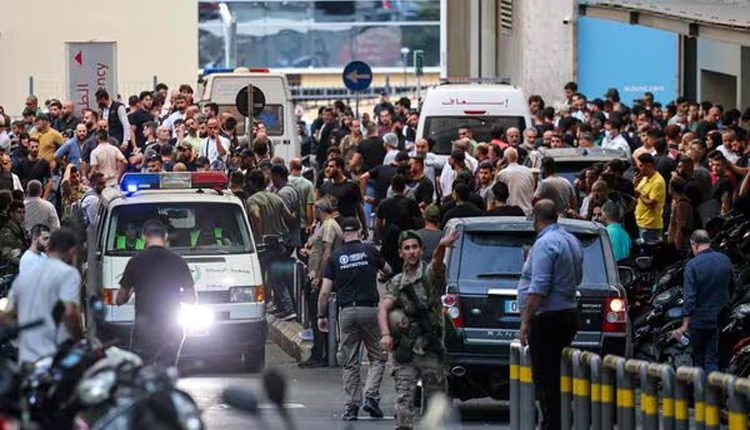New Delhi: A series of explosions in Lebanon on Tuesday (17th September) has left over 1,000 people injured, including Iran’s ambassador, Mojtaba Amani. The blasts occurred in a shocking incident involving the explosion of pagers used by Hezbollah members for communication.
According to reports from Reuters, the explosions caused widespread panic, with Hezbollah fighters and medical personnel among those wounded. The blasts have sent shockwaves across Lebanon, particularly in Hezbollah-controlled areas, where the explosion of communication devices has raised serious concerns about the group’s security.
In the aftermath of the blasts, scenes of chaos unfolded with screams and confusion filling the air. Although no deaths have been reported so far, the extent of injuries includes both civilians and Hezbollah militants, with Iran’s ambassador also among the casualties.
The explosions took place in the Lebanese capital, Beirut, leading to speculation about a targeted attack on Hezbollah, the militant group labelled as a terrorist organisation by the US and the European Union. Despite being banned in these regions, Hezbollah maintains strong backing from Iran, which has led to heightened tensions in the Middle East.
Hezbollah’s Response
Hezbollah has pointed the finger at Israel, accusing it of being behind the attack. The organisation described the blasts as one of the biggest security breaches in its history. “All the pagers exploded simultaneously,” Hezbollah stated, calling it a highly coordinated attack and a significant lapse in their security.
The ongoing conflict between Israel and Hezbollah has worsened in recent weeks, particularly following Israeli military operations in Gaza. Hezbollah has since engaged in military confrontations with the Israeli Defense Forces (IDF). However, when Reuters approached the IDF for a statement regarding the incident, Israeli officials declined to comment.
As Lebanon grapples with the aftermath of this unprecedented incident, the situation between Hezbollah and Israel continues to escalate, further destabilising the region.



Comments are closed.